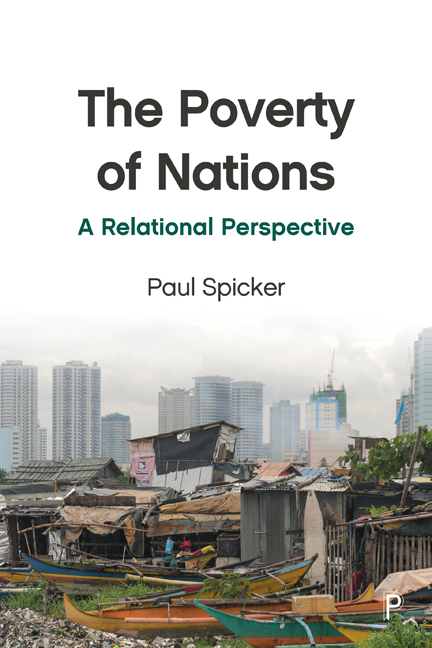9 - Poverty and the State
Published online by Cambridge University Press: 18 March 2021
Summary
The relationship between population, territory and government is not always crisp and clear: some states have territorial claims beyond their existing borders, and some maintain relationships with their citizens wherever they may be. (For example, citizens of the United States are expected to pay tax although they are not resident in the country; the Republic of Ireland acknowledges claims for citizenship on the basis of family connections from some people who have never lived there.) The citizens of every state can be thought of as a political community, linked by their common relationship to the country's political and legal institutions. Often this political community is identified with a nation, but the idea of the nation embraces a range of possible communities.
In its ‘thickest’, most developed sense, a nation is a political community with a common history, identity and culture. Relatively few states fit that model closely. Most countries in the world, Béland and Lecours argue, are actually multinational – the ‘nation state’, although it presents nation and territory as if they were the same, inevitably has to accommodate people from a range of backgrounds. Governance operates at several levels. This has implications for the definition of the political community; localism and sub-state nationalism can imply a weakening of national solidarity. Decentralisation is often presented as a way to enhance the power and resources of the regional communities, but Prud’homme suggests that it can, paradoxically, have the opposite effect, particularly in developing countries where the regional disparities are strongest. Decentralised government leads to less redistribution between rich and poor regions of a country, and that in turn implies a greater concentration of resources in the richer areas.
The definition of the political community (and of the nation) is important for social welfare, because among other things it defines a framework for the responsibilities that people have to each other – both for the groups that are part of that community, and for the people who are outside it. The process is both inclusive and exclusive. It is inclusive because it asserts the nature of the community that is being provided for.
- Type
- Chapter
- Information
- The Poverty of NationsA Relational Perspective, pp. 123 - 136Publisher: Bristol University PressPrint publication year: 2020



